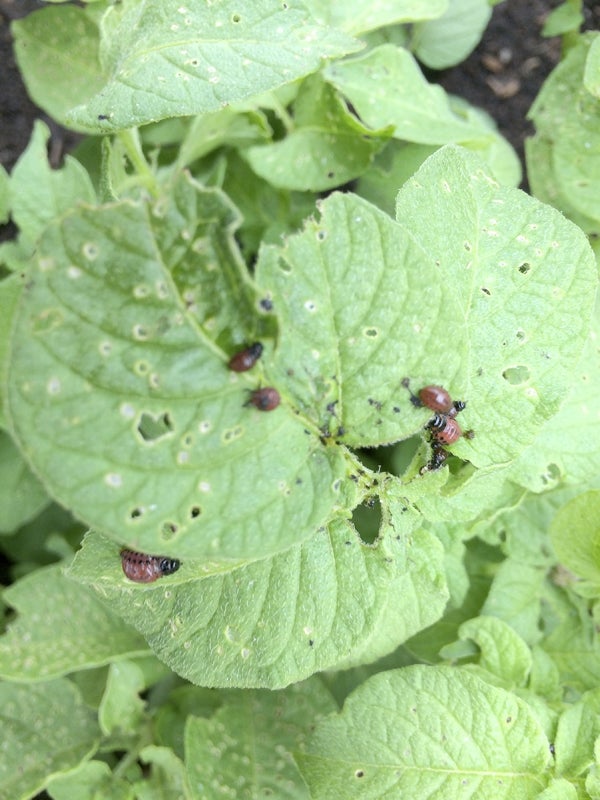Pesky pests put their mark on gardens
Published 12:00 am Friday, May 27, 2016

- Cooperative Extension Bad news — those are potato beetles, not lady bugs.
It has been nice to finally see that blazing orb in the sky and receive some warmer weather. After all of the rain that we have received and with the humidity and temperatures increasing, diseases and pests are starting to be the number one topic.
A helpful hint to reduce the impact of these pests is to routinely monitor or scout for diseases and pests in your gardens. If you see anything suspicious or if you are unsure whether the insect is good or bad, snap a photo or bring a sample in, and we will be glad to assist you. Below are a few questions about what other gardeners are seeing.
Question: What is wrong with my tomato plant? The leaves are all deformed! Is this insect damage?
Answer: The sample brought in had a few things causing major issues with the tomato plant. I was able to identify aphids on the tomatoes; these can cause distortion in leaves to an extent. Unfortunately, they did not cause the most damage to the leaves. It was actually herbicide damage. Herbicide damage can cause twisting and distorted leaves, and the plants look like something out of this world. After further investigation, the tomato plant had been fertilized with some cow manure. What the grower did not know was that the pastures had been treated with an herbicide that can linger in the soil, manure and hay. For more information on herbicide damage like this, visit: http://content.ces.ncsu.edu/herbicide-carryover
Question: What are these insects on my potato plants? Are they beneficial? They kind of look like the lady beetle larvae.
Answer: I wish they were lady beetle larvae but unfortunately, this is the dreaded potato beetle larvae, and they are having an all-you-can-eat buffet on your potato leaves. This is when scouting and looking at your plants can help reduce the plant load of this pest. If you have time, check your potatoes every day or every other day, and look on the top and bottom of the plants. Eggs are a bright, yellowish/orange color. The larvae can range in size, and the young ones can be very tiny; look around the stems. An easy method of getting rid of them is squishing them or knocking them into soapy water. Maintain crop rotation to break up the pest cycle. There are a few insecticides, but we only recommend using them when the situation is beyond natural control. For more information, please visit our website: https://pender.ces.ncsu.edu/2011/04/check-now-for-colorado-potato-beetles/
Question: Will there be any cooking demos at the farmers’ market?
Answer: Yes. There will be many throughout the year and as a matter of fact, there will be one this Saturday with our lovely Toi Degree. Be sure to visit the Salisbury Farmers’ Market at 115 S. Jackson St. from 8 a.m.-noon.
As always, be on the lookout for pests and disease. When in doubt, submit samples or photos. Do not just go and buy a pesticide and hope for the best — that usually causes more issues than benefits. If you have any questions concerning plants, gardening, or disease, please call your local agent, Danelle Cutting, or the Extension Office at 704-216-8970.




